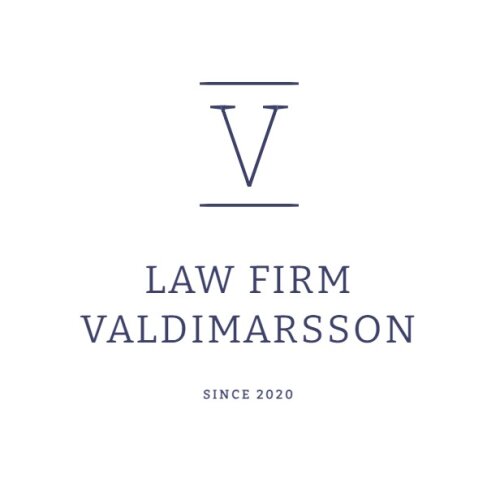Best Tax Increment Financing Lawyers in Iceland
Share your needs with us, get contacted by law firms.
Free. Takes 2 min.
Or refine your search by selecting a city:
List of the best lawyers in Iceland
About Tax Increment Financing Law in Iceland
Tax Increment Financing (TIF) is a public financing method that has become a popular means for municipalities in Iceland to stimulate economic development, particularly in urban areas. It operates by capturing the future tax benefits of real estate development within a designated area. These future tax revenues are then used to fund current improvements, such as infrastructure, which in turn encourages further development. While TIF is not as widespread in Iceland as in some other countries, it is growing in use as local governments seek innovative ways to boost economic growth without raising taxes directly.
Why You May Need a Lawyer
Engaging a lawyer knowledgeable in Tax Increment Financing can be crucial in the following scenarios:
- Understanding the complexities of establishing a TIF district, including compliance with local laws and regulations.
- Navigating the approval process with governmental bodies, which may involve detailed negotiations and legal documentation.
- Addressing disputes that arise from TIF agreements, including those between property developers and municipalities.
- Ensuring that the structuring of TIF financing meets all legal and financial requirements to avoid future liabilities.
- Providing guidance on how TIF impacts taxes and financial planning for stakeholders involved in the development process.
Local Laws Overview
In Iceland, the legal framework surrounding Tax Increment Financing is grounded in local government law and financial regulations. Key aspects include:
- TIF districts must be proposed and approved by local municipalities after a thorough feasibility study and public consultation process.
- Revenue generated through TIF must be used specifically for improvement projects within the TIF district itself.
- There are regulations in place to ensure transparency and accountability in the management of TIF funds.
- The impact on property values within and surrounding the TIF district must be assessed as part of the approval process.
- Municipalities must periodically review the performance and financial standing of TIF districts to ensure ongoing viability and compliance with initial agreements.
Frequently Asked Questions
What is the primary purpose of Tax Increment Financing in Iceland?
Tax Increment Financing in Iceland is primarily used to stimulate economic development and improve infrastructure within designated areas by re-investing the increased tax revenues from those areas.
Who benefits from TIF in Iceland?
Both the local community and private developers benefit from TIF. Communities gain from improved infrastructure and economic growth, while developers benefit from reduced up-front costs and enhanced project viability.
How is a TIF district established?
A TIF district is established through a proposal by local municipalities, followed by regulatory approvals, feasibility studies, and public consultations.
Can TIF affect my property taxes?
TIF does not directly increase property taxes. Instead, it uses the increase in regular taxes from rising property values to fund improvements in the district.
What types of projects can be funded using TIF?
Projects typically funded by TIF include infrastructure upgrades, public facilities, and other community development initiatives that support economic growth.
Is public approval required for TIF projects?
Yes, public consultations and approval processes are integral to the establishment of a TIF district, ensuring community input is considered.
How is the effectiveness of TIF measured?
Effectiveness is measured by evaluating economic growth metrics, infrastructure improvements, and financial performance against predetermined goals.
What are the risks associated with TIF?
Risks include potential financial shortfalls if projected tax increments do not materialize, leading to funding gaps for promised improvements.
How long does a TIF district typically last?
A TIF district generally exists until the planned improvements are completed and the associated costs are paid off, often covering a term of 20 to 30 years.
Can TIF be used for environmental projects?
Yes, TIF funding can be applied to initiatives that incorporate environmental and sustainable development goals within the TIF district.
Additional Resources
For further information and assistance, the following resources might be helpful:
- The Icelandic Ministry of Transport and Local Government for policy guidelines and regulatory information.
- Local municipalities for specific rules, district proposals, and ongoing projects related to TIF in your area.
- The Icelandic Investment Promotion Agency for insights into how TIF can be leveraged for economic development opportunities.
- Legal professionals and firms specializing in municipal finance and real estate law for personalized legal advice and support.
Next Steps
If you find yourself needing legal assistance related to Tax Increment Financing in Iceland, consider the following steps:
- Consult with a legal professional who specializes in municipal and real estate law to discuss your specific needs and concerns regarding TIF.
- Gather all relevant documents and information regarding the TIF district or project of interest to facilitate comprehensive legal analysis and advice.
- Engage with local municipal authorities to understand their expectations and requirements for TIF processes and compliance.
- Explore opportunities for public engagement or consultation events related to TIF projects to gain a community perspective and insight.
Lawzana helps you find the best lawyers and law firms in Iceland through a curated and pre-screened list of qualified legal professionals. Our platform offers rankings and detailed profiles of attorneys and law firms, allowing you to compare based on practice areas, including Tax Increment Financing, experience, and client feedback.
Each profile includes a description of the firm's areas of practice, client reviews, team members and partners, year of establishment, spoken languages, office locations, contact information, social media presence, and any published articles or resources. Most firms on our platform speak English and are experienced in both local and international legal matters.
Get a quote from top-rated law firms in Iceland — quickly, securely, and without unnecessary hassle.
Disclaimer:
The information provided on this page is for general informational purposes only and does not constitute legal advice. While we strive to ensure the accuracy and relevance of the content, legal information may change over time, and interpretations of the law can vary. You should always consult with a qualified legal professional for advice specific to your situation.
We disclaim all liability for actions taken or not taken based on the content of this page. If you believe any information is incorrect or outdated, please contact us, and we will review and update it where appropriate.
Browse tax increment financing law firms by city in Iceland
Refine your search by selecting a city.

















